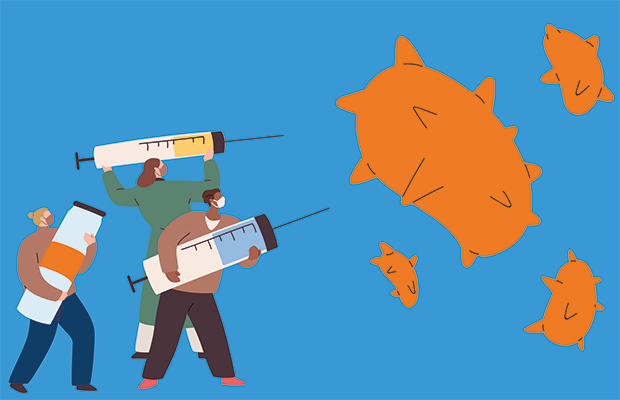WJEC French FN4 - 14th June 2016
Scroll to see replies
Original post by Swifty139
Yeah was all a bit odd idk
I didn't notice any subjunctive although I forgot to put de Noel for Christmas tree xD I didn't know what to put for 'on Christmas' either so I just went with 'le Noel'?
Do the last sentence ('for food that you haven't eaten' -> 'Pour la nourriture que vous n'aurez pas mangée?
-> 'Pour la nourriture que vous n'aurez pas mangée?
I didn't notice any subjunctive although I forgot to put de Noel for Christmas tree xD I didn't know what to put for 'on Christmas' either so I just went with 'le Noel'?
Do the last sentence ('for food that you haven't eaten'
 -> 'Pour la nourriture que vous n'aurez pas mangée?
-> 'Pour la nourriture que vous n'aurez pas mangée?Nah I would say passé composé.. what merits the future?
Original post by patricio_miguel
I put simply "que vous n'avez pas mangé"
"Vous n'aurez pas" = you will not have
+ how did you guys translate "supposed to"? I put "vous DEVRIEZ"
"Vous n'aurez pas" = you will not have
+ how did you guys translate "supposed to"? I put "vous DEVRIEZ"
I agree other than "mangée"*
And same for vous devriez
Original post by libaax
oh, right, we never did learn direct object pronouns very well  thank you for teaching me something new! (even though i never have to do french again ... ehehe)
thank you for teaching me something new! (even though i never have to do french again ... ehehe)
 thank you for teaching me something new! (even though i never have to do french again ... ehehe)
thank you for teaching me something new! (even though i never have to do french again ... ehehe)Original post by libaax
ohhhh rats ;_; thank you! let's just hope i did alright on the rest of it hahaha
If it's any consolation you'll only lose 1 mark for mangé
Original post by patricio_miguel
La journée de Nouvel An! Had no clue whatsoever haha.
Anyone wants to share their answers for the reading section? I was so thrown off...felt like they were asking the same questions lol? The one about Madagascar? I put that it helps to cease any prejudice that people might have toward les handicapés...
Anyone wants to share their answers for the reading section? I was so thrown off...felt like they were asking the same questions lol? The one about Madagascar? I put that it helps to cease any prejudice that people might have toward les handicapés...
Is new years day not Le revéillon? It was in the text
Original post by aysha_aamer
How did people translate which bin to throw their rubbish in?
I think I put something along the lines of "la poubelle dans laquelle on devrait jeter ses déchets" but I'm not sure
I think I put something along the lines of "la poubelle dans laquelle on devrait jeter ses déchets" but I'm not sure

Original post by Swifty139
That's grammatically correct and i'm sure the MS will give lots of options. I put 'Dans quelle poubelle il faut jeter vos déchets'
The exact translation for that sentence was at the start of the text how did you not see it?
 remember there was a question in the reading like: What do French people find difficult?
remember there was a question in the reading like: What do French people find difficult?(Ils ne savent pas) dans quelle poubelle jeter leurs déchets
It's funny bcos it was translated directly from french to english for the translation so it stood out as weird: they don't know in which bin to throw their rubbish
Also, did everyone get "by sorting their rubbish" as en triant leurs déchets
(Edit: i dont remember the translation word for word but u get what i mean. Wasnt it "you are supposed to know in which bin to throw your rubbish"? So "vous devriez savoir dans quelle pouble jeter vos déchets")
(edited 7 years ago)
Original post by rileystringer1
I agree other than "mangée"*
And same for vous devriez
If it's any consolation you'll only lose 1 mark for mangé
Is new years day not Le revéillon? It was in the text
The exact translation for that sentence was at the start of the text how did you not see it? remember there was a question in the reading like: What do French people find difficult?
remember there was a question in the reading like: What do French people find difficult?
(Ils ne savent pas) dans quelle poubelle jeter leurs déchets
It's funny bcos it was translated directly from french to english for the translation so it stood out as weird: they don't know in which bin to throw their rubbish
Also, did everyone get "by sorting their rubbish" as en triant leurs déchets
(Edit: i dont remember the translation word for word but u get what i mean. Wasnt it "you are supposed to know in which bin to throw your rubbish"? So "vous devriez savoir dans quelle pouble jeter vos déchets"
And same for vous devriez
If it's any consolation you'll only lose 1 mark for mangé
Is new years day not Le revéillon? It was in the text
The exact translation for that sentence was at the start of the text how did you not see it?
 remember there was a question in the reading like: What do French people find difficult?
remember there was a question in the reading like: What do French people find difficult?(Ils ne savent pas) dans quelle poubelle jeter leurs déchets
It's funny bcos it was translated directly from french to english for the translation so it stood out as weird: they don't know in which bin to throw their rubbish
Also, did everyone get "by sorting their rubbish" as en triant leurs déchets
(Edit: i dont remember the translation word for word but u get what i mean. Wasnt it "you are supposed to know in which bin to throw your rubbish"? So "vous devriez savoir dans quelle pouble jeter vos déchets"

Le réveillon means "eve" and the translation said "day"
And I agree lol it is indeed "mangée" urgh I'm so annoyed! It's always them silly mistakes 😩
Original post by patricio_miguel
Le réveillon means "eve" and the translation said "day"
Really? Im pissed off
 i wrote le jour du Nouvel An then changed it
i wrote le jour du Nouvel An then changed itOriginal post by rileystringer1
I agree other than "mangée"*
And same for vous devriez
If it's any consolation you'll only lose 1 mark for mangé
Is new years day not Le revéillon? It was in the text
The exact translation for that sentence was at the start of the text how did you not see it? remember there was a question in the reading like: What do French people find difficult?
remember there was a question in the reading like: What do French people find difficult?
(Ils ne savent pas) dans quelle poubelle jeter leurs déchets
It's funny bcos it was translated directly from french to english for the translation so it stood out as weird: they don't know in which bin to throw their rubbish
Also, did everyone get "by sorting their rubbish" as en triant leurs déchets
(Edit: i dont remember the translation word for word but u get what i mean. Wasnt it "you are supposed to know in which bin to throw your rubbish"? So "vous devriez savoir dans quelle pouble jeter vos déchets")
And same for vous devriez
If it's any consolation you'll only lose 1 mark for mangé
Is new years day not Le revéillon? It was in the text
The exact translation for that sentence was at the start of the text how did you not see it?
 remember there was a question in the reading like: What do French people find difficult?
remember there was a question in the reading like: What do French people find difficult?(Ils ne savent pas) dans quelle poubelle jeter leurs déchets
It's funny bcos it was translated directly from french to english for the translation so it stood out as weird: they don't know in which bin to throw their rubbish
Also, did everyone get "by sorting their rubbish" as en triant leurs déchets
(Edit: i dont remember the translation word for word but u get what i mean. Wasnt it "you are supposed to know in which bin to throw your rubbish"? So "vous devriez savoir dans quelle pouble jeter vos déchets")
I used the exact sentence out of the resource text too! Though of course I altered the savoir bit to fit in with the translation.
And yeah I said en triant leurs déchets
Posted from TSR Mobile
Original post by ciarasimpson29
I used the exact sentence out of the resource text too! Though of course I altered the savoir bit to fit in with the translation.
And yeah I said en triant leurs déchets
Posted from TSR Mobile
And yeah I said en triant leurs déchets
Posted from TSR Mobile
Where did y'all get that en triant business lol what question was that 😭😭😭
Original post by patricio_miguel
Where did y'all get that en triant business lol what question was that 😭😭😭
Wasn't it in the translation? "By sorting your/their rubbish"
Original post by rileystringer1
Nah I would say passé composé.. what merits the future?
The sentence started off with 'you will need' so 'vous aurez besoin de' and then goes on to say 'for food you haven't eaten' but the fact the need is in the future specifies that it's for food than you will not have eaten?
It's like the rule about age, in English we say, when i'm 18 I will go to university, but in French they say 'Quand j'aurai dix-huit ans, j'irai a l'université' so they use the future
I don't know if it would have applied in the same sense but that's my logic?
Original post by Swifty139
The sentence started off with 'you will need' so 'vous aurez besoin de' and then goes on to say 'for food you haven't eaten' but the fact the need is in the future specifies that it's for food than you will not have eaten?
It's like the rule about age, in English we say, when i'm 18 I will go to university, but in French they say 'Quand j'aurai dix-huit ans, j'irai a l'université' so they use the future
I don't know if it would have applied in the
same sense but that's my logic?
It's like the rule about age, in English we say, when i'm 18 I will go to university, but in French they say 'Quand j'aurai dix-huit ans, j'irai a l'université' so they use the future
I don't know if it would have applied in the
same sense but that's my logic?
hmmm...I just had a thought...it did state "have not eaten" - eaten being the past participle rather than "ate" :/ so it does imply that futuristic tense ugh
(edited 7 years ago)
Original post by Swifty139
The sentence started off with 'you will need' so 'vous aurez besoin de' and then goes on to say 'for food you haven't eaten' but the fact the need is in the future specifies that it's for food than you will not have eaten?
It's like the rule about age, in English we say, when i'm 18 I will go to university, but in French they say 'Quand j'aurai dix-huit ans, j'irai a l'université' so they use the future
I don't know if it would have applied in the same sense but that's my logic?
It's like the rule about age, in English we say, when i'm 18 I will go to university, but in French they say 'Quand j'aurai dix-huit ans, j'irai a l'université' so they use the future
I don't know if it would have applied in the same sense but that's my logic?
@FrenchUnicorn qu'est-ce que tu dirais?
La phrase à traduire c'était "you will need a bin for glass, another for plastic, a third for (?) and a fourth for food that you haven't eaten"
Alors ça mérite quel temps "that you haven't eaten"?
Original post by rileystringer1
@FrenchUnicorn qu'est-ce que tu dirais?
La phrase à traduire c'était "you will need a bin for glass, another for plastic, a third for (?) and a fourth for food that you haven't eaten"
Alors ça mérite quel temps "that you haven't eaten"?
La phrase à traduire c'était "you will need a bin for glass, another for plastic, a third for (?) and a fourth for food that you haven't eaten"
Alors ça mérite quel temps "that you haven't eaten"?
-> tu vas avoir besoin d'une poubelle pour le verre, une autre pour le plastique, une troisième pour (pas compris pourquoi y a un point d'interrogation ici ?) ; et une quatrième pour la nourriture non consommée
Good you haven't eaten is literally -> la nourriture que tu n'as pas mangée
But we're more likely to use "nourriture non consommée"
Original post by FrenchUnicorn
-> tu vas avoir besoin d'une poubelle pour le verre, une autre pour le plastique, une troisième pour (pas compris pourquoi y a un point d'interrogation ici ?) ; et une quatrième pour la nourriture non consommée
Good you haven't eaten is literally -> la nourriture que tu n'as pas mangée
But we're more likely to use "nourriture non consommée"
Good you haven't eaten is literally -> la nourriture que tu n'as pas mangée
But we're more likely to use "nourriture non consommée"
The debate is over the choice of tense, because the sentence started with "you will need" which most of us have translated as "vous aurez besoin de", so then would you have to say "la nourriture que vous n'aurez pas mangée", or "que vous n'avez pas mangée"?
Original post by rileystringer1
The debate is over the choice of tense, because the sentence started with "you will need" which most of us have translated as "vous aurez besoin de", so then would you have to say "la nourriture que vous n'aurez pas mangée", or "que vous n'avez pas mangée"?
Aww I see !
Mmmh, in such a sentence we can use them both.
"Que vous n'aurez pas mangée" would be used if the person hasn't eat yet , and "que vous n'avez pas mangée" would be used if the person has eaten already. Get me ?
But that ^^^ is really to explain why they're slighlty different, because to be fair both are correct
Quick Reply
Related discussions
- A-level Exam Discussions 2024
- GCSE Exam Discussions 2024
- A Level Exam Discussions 2023
- GCSE Exam Discussions 2023
- WJEC A-level English Literature Unit 4 (1720U40-1) - 14th June 2024 [Exam Chat]
- A-level Business Study Group 2022-2023
- Edexcel A-Level French Paper 2 (9FR0 02) - 19th June 2024 [Exam Chat]
- Edexcel A-Level French Paper 1 (9FR0 01) - 12th June 2023 [Exam Chat]
- AQA as level economics 2015 specimen paper 2
- GCSE 2023 Grade Boundaries (All Exam Boards)
- WJEC A Level History Paper 2 - 7th June 2024 [Exam Chat]
- 2023 WJEC Ecomnomics A Level Grade Boundaries
- WJEC A Level Economics Paper 2 (1520U40-1) - 7th June 2024 [Exam Chat]
- Go ahead in time as far as possible
- WJEC A Level Government and Politics Paper 2 (1160U40-1) - 5th June 2024 [Exam Chat]
- WJEC GCSE Welsh Exam - 8th June [Exam Chat]
- Stuck on Past Paper
- Edexcel A-Level French Paper 2 (9FR0 02) - 19th June 2023 [Exam Chat]
- Edexcel GCSE Physics Paper 2 Foundation (1PH0/2F) - 14th June 2024 [Exam Chat]
- Wjec Music GCSE – 14 June 2023
Latest
Last reply 2 minutes ago
Should I send TMUA to LSE? (Maths, Stats and Business)Last reply 2 minutes ago
year 13 gyg journal : trying not to become an academic victim 🤡📖Last reply 3 minutes ago
Official London School of Economics and Political Science 2024 Applicant ThreadLast reply 7 minutes ago
Official University of Bath Offer Holders Thread for 2024 entryLast reply 10 minutes ago
November 2023 Illegal Migration Intake Unit - Intake Response Team - Immigration OffiLast reply 14 minutes ago
yet to receive a woodhouse interviewLast reply 14 minutes ago
Official University of Sheffield Offer Holders Thread for 2024 entryLast reply 15 minutes ago
Woodhouse College applicants 2024Trending
Last reply 49 minutes ago
AQA A Level French Paper 3 (Speaking/IRP) 7652/3 - 2024 [Exam Chat]Last reply 4 days ago
AQA A Level Spanish Paper 3 (Speaking/IRP) 7692/3 - 2024 [Exam Chat]Last reply 5 days ago
AQA GCSE German Speaking Higher (8668/SH) [Exam Chat]Last reply 2 weeks ago
I got a 9 in AQA GCSE Higher French - ask me anything :)Last reply 4 weeks ago
What kind of questions will she ask about my IRP (Spanish A level)Trending
Last reply 49 minutes ago
AQA A Level French Paper 3 (Speaking/IRP) 7652/3 - 2024 [Exam Chat]Last reply 4 days ago
AQA A Level Spanish Paper 3 (Speaking/IRP) 7692/3 - 2024 [Exam Chat]Last reply 5 days ago
AQA GCSE German Speaking Higher (8668/SH) [Exam Chat]Last reply 2 weeks ago
I got a 9 in AQA GCSE Higher French - ask me anything :)Last reply 4 weeks ago
What kind of questions will she ask about my IRP (Spanish A level)



